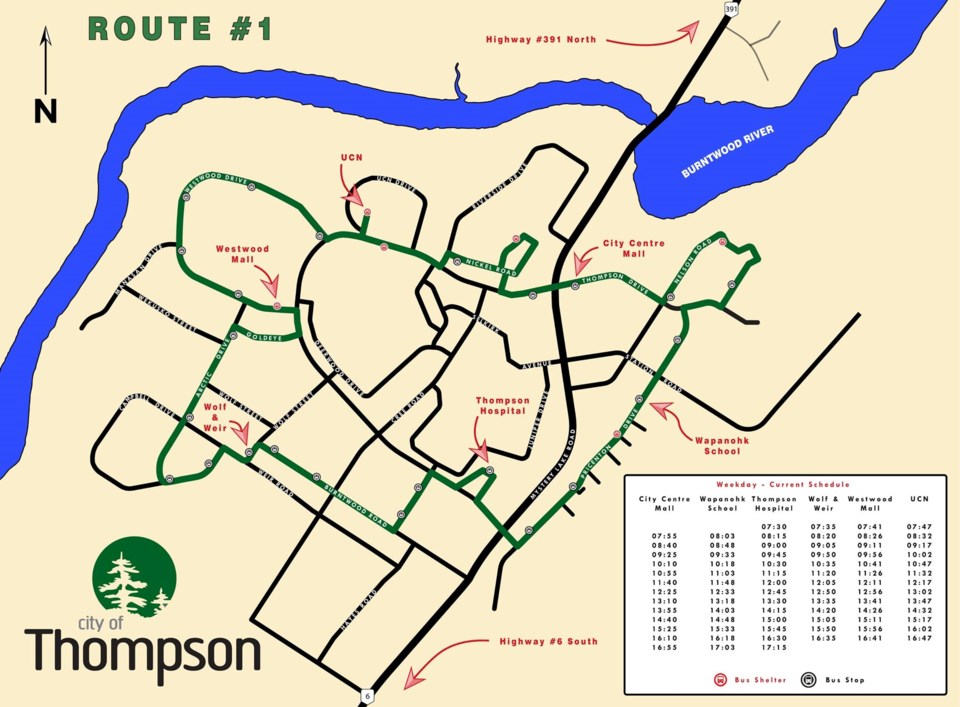The fact that the city was able to find a company to provide transit services beginning Jan. 2 at a cost that is less per year than they have been paying since at least 2011 is welcome news for taxpayers and people who need the bus to get around. Hopefully, Maple Bus Lines will be able to provide all the services they have agreed to at that bargain price for the duration of the four-and-a-half year contract.
Maple Bus Lines’ successful bid came in at less than $600,000 for 54 months before taxes – an annual cost of about $133,000 per year, or $11,000 per month. For that, they are expected to run two routes on weekdays, one of which is an express route mainly for students going to and from school, and one weekday route in the summer. There is potential for the company to make more money over the life of the contract by providing replacement buses as needed, mechanical repair work, and a premium on top of the cost of supplies purchased to perform those repairs.
The winning bid came in much lower than the other two bids – one from NCN Thompson Bus, which projected a total cost before add-ons and taxes of about $1.3 million for the duration of the contract, and the other from Mahihkan Bus Ltd. Partnership, which quoted a base price of $1.8 million for 54 months. The latter would have represented an annual cost of about $400,000, slightly less than the city paid Greyhound for operating transit in 2017, while NCN Thompson Bus’s price would have worked out to about $288,000 per year, about $15,000 more per year than Greyhound received from the city over a course of a five-year contract to operate city transit from 2011 through 2015.
Whether Maple Bus Lines made a lowball offer in order to improve their chances of being selected as the winning bidder or if they hope to show that they can provide the services effectively over the next four-and-a-half years and then up their prices while having the advantage of proven reliability, only they can say. But it does seem unlikely that one bus company’s costs would be so different from another’s. Perhaps, as Coun. Brian Lundmark mentioned during the Dec. 19 special meeting when the bid was approved, they’re just making sure they have enough to get by.
“Sometimes when tenders come in like this and they’re a little lower than others, they’re just making sure the lights stay on and they’re making sure that they’re in operation and they’ll get their extra money from other parts of their business,” he said. “That’s not up to us to question that. It’s great for the city. They have to live by it and hopefully they can operate for that amount of money.”
Regardless of whether the bid makes business sense for Maple Bus Lines or not, it is a good deal for the city and it is no doubt a relief to people without cars, as well as high school, elementary and post-secondary students, to know that there will be bus services throughout 2020 and for the next three years beyond, as well as at least the first half of 2024. After 14 months during which Thompson was without public transit for about two-thirds of the time, simply knowing that there will be a bus you can catch, even if it is only on weekdays, is something that residents have learned not to take for granted. Hopefully three years from now, when the contract is six months from expiring, the next city council be sure to know what they intend on doing well in advance and make it known to the public. More than three-and-a-half months elapsed between Greyhound announcing in early July 2018 that they were shutting down Western Canada operations as of Oct. 31 of that year, but the city was unable to respond in time, resulting in three-and-a-half months of no buses until service resumed on a temporary basis for four-and-a-half months last spring, and then another six-month suspension, originally billed as a two-month hiatus, that finally ended yesterday. There are still many questions that can be asked regarding how this situation unfolded, but at least one of them is no longer, “When will Thompson have transit service again?”



